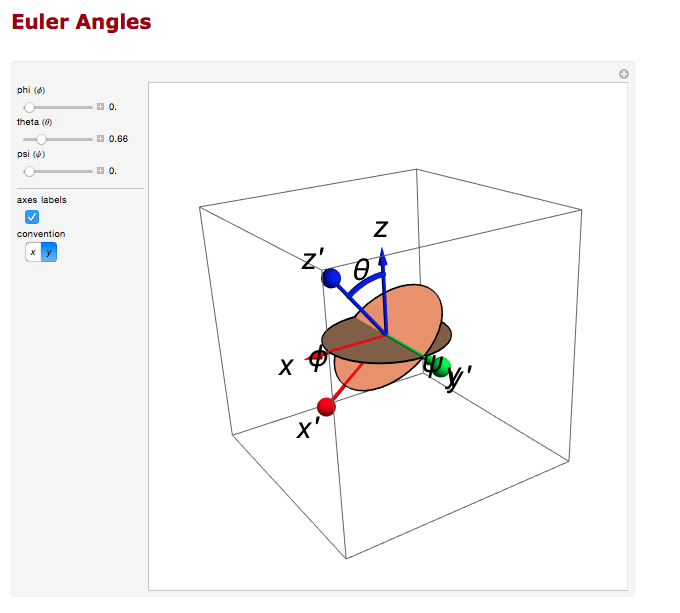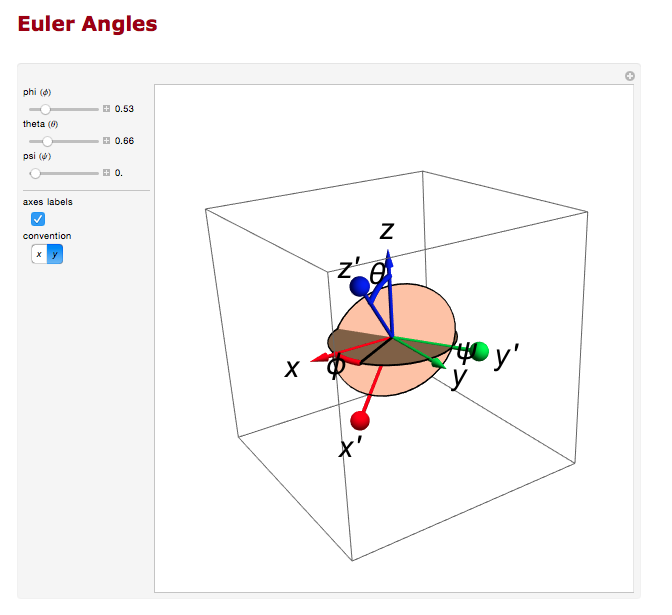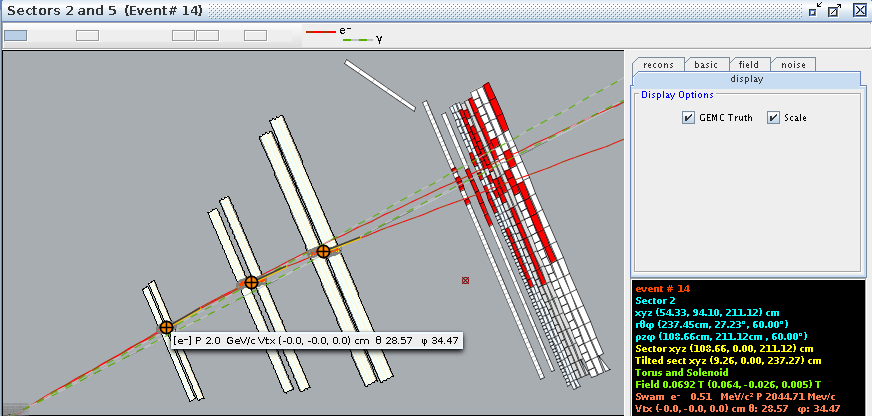Difference between revisions of "DV Analyze Recon"
Jump to navigation
Jump to search
| Line 2: | Line 2: | ||
| − | =[[ | + | =Euler Angles= |
| + | We can use the Euler angles to perform the rotations. | ||
| + | |||
| + | For the rotation about the y axis. | ||
| + | |||
| + | [[File:Euler1.png]] | ||
| + | |||
| + | And the rotation about the z axis. | ||
| + | |||
| + | [[File:Euler2.png]] | ||
=Transformation Matrix= | =Transformation Matrix= | ||
Revision as of 17:23, 30 March 2016
Analysis.groovy
Euler Angles
We can use the Euler angles to perform the rotations.
For the rotation about the y axis.
And the rotation about the z axis.
Transformation Matrix
The Euler angles can be applied using a transformation matrix
For event #29, in sector 3, the location of the first interaction is given by
Converting -25 degrees to radians,
which is the rotation the detectors are rotated from the y axis.
Finding since "sector -1" =3-1=2*60=120 degrees
This shows how the coordinates are transformed and explains the validity of using the TBTracking information to obtain a phi angle in the lab frame.


